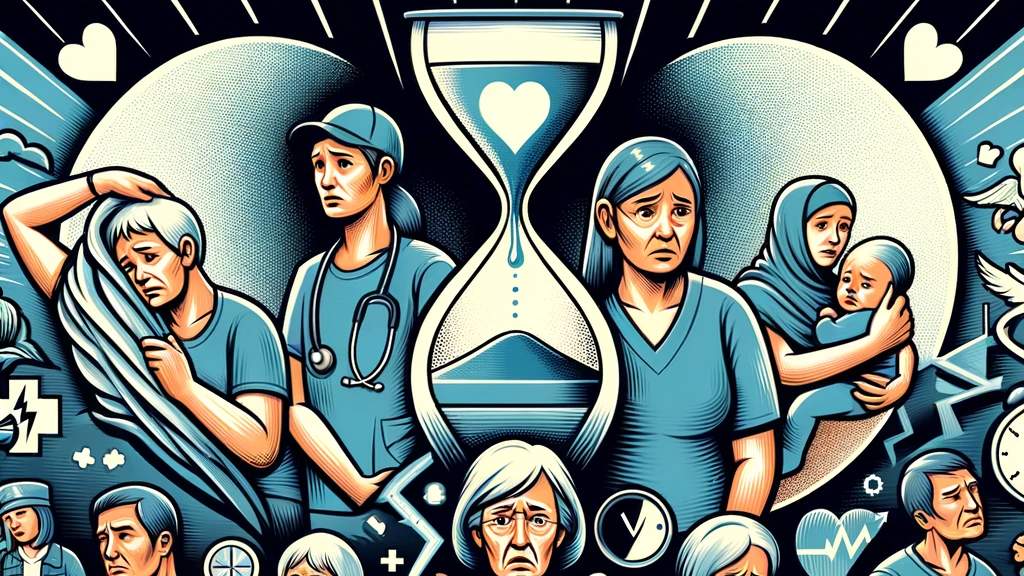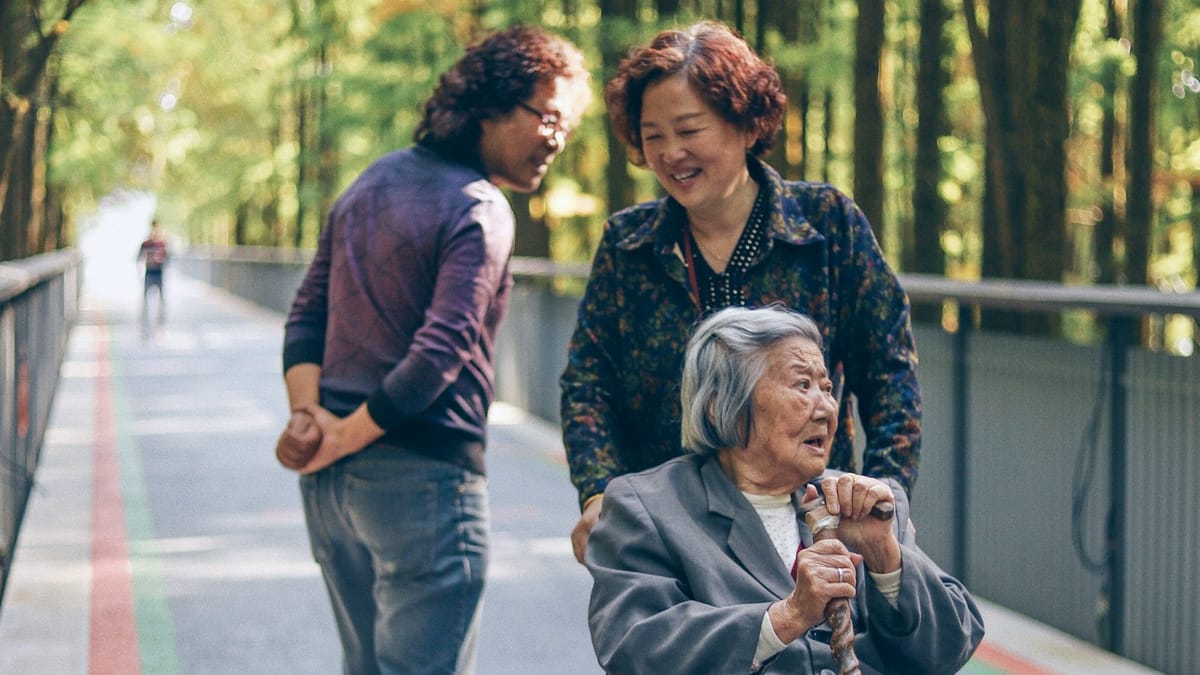Addressing the Caregiver Crisis in US: The First National Strategy
Exploring the caregiver crisis, this post delves into the challenges faced by family caregivers. It addresses the physical, emotional, and financial toll, and the need for societal support, highlighting the urgency for policy changes and community awareness to support these unsung heros

As the White House Conference on Aging convenes in 2025, a critical issue at the forefront is the nationwide caregiver shortage and the escalating caregiver crisis. While recent legislation has been hailed as a landmark achievement, it falls short of addressing the real needs of family caregivers, who are the backbone of our healthcare system. These caregivers, often family members, are in dire need of financial support and regular, consistent respite care.
The Physical, Mental, and Financial Toll on Family Caregivers
Family caregivers, whether attending to elderly parents, children with disabilities, or partners with chronic conditions, face immense physical, mental, and financial challenges. Many of these caregivers also support individuals suffering from mental illness, adding another layer of complexity and stress to their responsibilities. The caregiver crisis is not just about the increasing number of baby boomers needing care; it’s about the health and well-being of those providing care. Adult children and spousal caregivers find themselves in a care crisis, balancing their own kids’ needs, jobs, and health with those of their loved ones. This unpaid labor, often performed by women, goes unrecognized in labor statistics, yet it forms an essential part of our health systems.
The mental health impact on caregivers is profound. The stress of managing daily tasks, coupled with the emotional toll of caregiving, leads to a looming crisis in mental well-being. Moreover, the financial burden is significant. From caregiving expenses to the impact on retirement savings, many families are struggling to provide care without adequate support.
The Need for Public Awareness and Care Team Support Groups
One of the key solutions to this crisis is building public awareness and establishing Care Team Partner Support Groups. These groups can offer unpaid caregiving support, providing much-needed respite and emotional support. Encouraging more education on caregiving and facilitating the formation of support groups can alleviate some pressure from full-time caregivers.

The Perfect Storm: Aging Population, Lack of Direct Care Workers, Medicare Cost Sharing
The growing aging population, the shortage of home health aides and other direct care workers, and the Medicare cost-sharing model are creating the perfect storm. In-home caregivers play a critical role in addressing the growing demand for elderly care as more seniors choose to age in place rather than in assisted living facilities. This crisis is not looming; it is here and now. The healthcare system, already strained, is feeling the impacts. With many boomers reaching an age where long-term care is necessary, and the highest percentage of families without adequate support, the strain is evident.
The shortage in the labor force for personal care and home health services exacerbates the situation. Many employers do not offer the flexibility required for workers to manage caregiving and work hours. Issues like heart failure and other chronic conditions in loved ones demand time and attention that the current workforce cannot afford.

The Role of Personal Care Aides
Personal care aides play a vital role in supporting individuals with disabilities, older adults, and those with chronic illnesses. They provide essential caregiving services, including assistance with daily activities such as bathing, dressing, and grooming, as well as light housekeeping and meal preparation. Personal care aides also offer emotional support and companionship, helping to alleviate feelings of loneliness and isolation.
In the context of the caregiver shortage, personal care aides are in high demand. According to the Bureau of Labor Statistics, employment of home health and personal care aides is projected to grow 25% from 2021 to 2031, much faster than the average for all occupations. This growth is driven by the increasing need for caregiving services, particularly among the aging baby boomer generation.
Despite the importance of their role, personal care aides often face challenges, including low wages, limited benefits, and inadequate training. Addressing these issues is crucial to attracting and retaining qualified personal care aides, who are essential to supporting the growing number of individuals requiring caregiving services.
Governmental Action: Necessary but Insufficient
The government’s role in addressing this crisis is crucial, but it cannot be the sole provider of care and support. The increasing demand for paid caregivers is a significant challenge, as the aging population seeks to age in place, avoiding nursing homes. While Medicaid and other health care programs offer some relief, they are not enough. The Covid-19 pandemic has further highlighted the vulnerabilities in our system, where more people are required to provide care at home due to risks associated with nursing homes and other communal living situations.

Key Components of a National Strategy
A national strategy to address the caregiver shortage must include several key components. Firstly, it is essential to increase funding for community-based services, such as home health care and adult day care programs. These services enable individuals to receive care in their own homes, reducing the need for institutional care and supporting family caregivers.
Secondly, the strategy should focus on supporting direct care workers, including personal care aides and home health aides. This can be achieved through initiatives such as training programs, career advancement opportunities, and improved wages and benefits.
Thirdly, the strategy should prioritize family caregivers, who provide unpaid care to loved ones. This can be achieved through initiatives such as respite care programs, caregiver support groups, and education and training programs.
Finally, the strategy should address the root causes of the caregiver shortage, including the lack of affordable caregiving options and the inadequate reimbursement rates for caregiving services. By addressing these underlying issues, we can work towards a more sustainable and equitable caregiving system.
Implementing the National Strategy
Implementing a national strategy to address the caregiver shortage will require a collaborative effort from policymakers, healthcare providers, and community-based organizations. Firstly, it is essential to establish a national framework for caregiving, which outlines the key components of the strategy and provides guidance for implementation.
Secondly, policymakers must work to increase funding for community-based services and support direct care workers through initiatives such as training programs and improved wages and benefits.
Thirdly, healthcare providers must prioritize family caregivers, providing them with the support and resources they need to care for their loved ones. This can be achieved through initiatives such as caregiver support groups and education and training programs.
Finally, community-based organizations must work to raise awareness about the caregiver shortage and the importance of supporting caregivers. This can be achieved through initiatives such as public awareness campaigns and advocacy efforts.
By working together, we can implement a national strategy that addresses the caregiver shortage and supports the growing number of individuals requiring caregiving services.
The Call to Action: Caregiver Relief Family Caregiver and Direct Care Worker Petition
It’s imperative that we call for action beyond government intervention. The nationwide caregiver shortage felt by older adults and their care partners has created significant anxiety and highlights the urgent need for solutions. The Caregiver Relief Family Caregiver and Direct Care Worker petition is a step towards acknowledging and addressing this crisis. This petition calls for more substantial support for caregivers, recognizing their invaluable contribution to society. It is a call to the country, to employers, and to the health care system to acknowledge and support the unpaid labor of millions of Americans.
Conclusion: A Society-Wide Effort
Addressing the caregiver crisis requires a concerted effort from all sectors of society. From providing paid leave to recognizing the role of caregivers in the workforce, from supporting home care to offering financial and emotional support to those in the sandwich generation, we must come together to address this crisis. It's not just about the health of our loved ones; it's about the health of our society and the well-being of those who dedicate their lives to caring for others.
As we move forward, let us remember that every person taking care of a loved one is part of a larger story – a story of a society grappling with aging, illness, and the need for compassionate care. By signing the Caregiver Relief petition and advocating for more robust support systems, we can begin to address this crisis and build a more caring and sustainable future for all.
As the White House Conference on Aging convenes in 2025, a critical issue at the forefront is the escalating caregiver crisis. While recent legislation has been hailed as a landmark achievement, it falls short of addressing the real needs of family caregivers, who are the backbone of our healthcare system. These caregivers, often family members, are in dire need of financial support and regular, consistent respite care.
Frequently Asked Questions on the Caregiver Crisis
What is the caregiver crisis?
The caregiver crisis refers to the increasing burden and challenges faced by family caregivers who provide unpaid care to family members, including elderly parents, children, or spouses with chronic conditions. This crisis is marked by a lack of adequate support, resources, and recognition for caregivers.
How does the caregiving crisis affect family members?
Family members who are caregivers often experience significant physical, emotional, and financial strain. They may struggle to balance caregiving with their own health needs, work, and caring for their own kids, leading to a care crisis.
What challenges do elderly parents face in the caregiving crisis?
Elderly parents may not receive the level of care they need due to the shortage of home health aides and the high cost of caregiving expenses. This can lead to inadequate care and increased health risks.
Are there any support groups for caregivers?
Yes, there are various support groups for caregivers that provide emotional support, resources, and information to help manage the challenges of caregiving.
How does the caregiver crisis impact the healthcare system?
The caregiver crisis puts a strain on the healthcare system as more people, particularly the baby boomer generation, require care. The lack of adequate support for caregivers can lead to increased health care costs and a burden on health systems.
Labor statistics show that a significant portion of the labor force is engaged in unpaid caregiving, often without any formal recognition or support. This unpaid labor is a critical component of society's overall healthcare provision.
How does the caregiver crisis impact retirement savings?
Many caregivers face financial difficulties, including depleted retirement savings, due to the costs associated with providing care and potentially reduced work hours or leaving the workforce entirely.
What are the challenges faced by full-time caregivers?
Full-time caregivers often deal with physical exhaustion, emotional stress, financial burdens, and the challenge of managing daily tasks for their loved ones while neglecting their own health and well-being.
What impact has the COVID-19 pandemic had on caregiving?
The COVID-19 pandemic has exacerbated the caregiver crisis by increasing the demand for caregiving, particularly in-home care, and exposing the vulnerabilities in the healthcare and support systems for caregivers.
How is Medicaid involved in addressing the caregiver crisis?
Medicaid provides some assistance for caregiving, particularly in funding for home care services and support for individuals with disabilities, but it often falls short of addressing the full scope of needs.
What can society do to support caregivers?
Society can support caregivers by advocating for policies that provide financial support, paid leave, and medical benefits. Additionally, increasing public awareness and creating more supportive workplace policies can help alleviate some of the challenges faced by caregivers.
You might also like this article:















